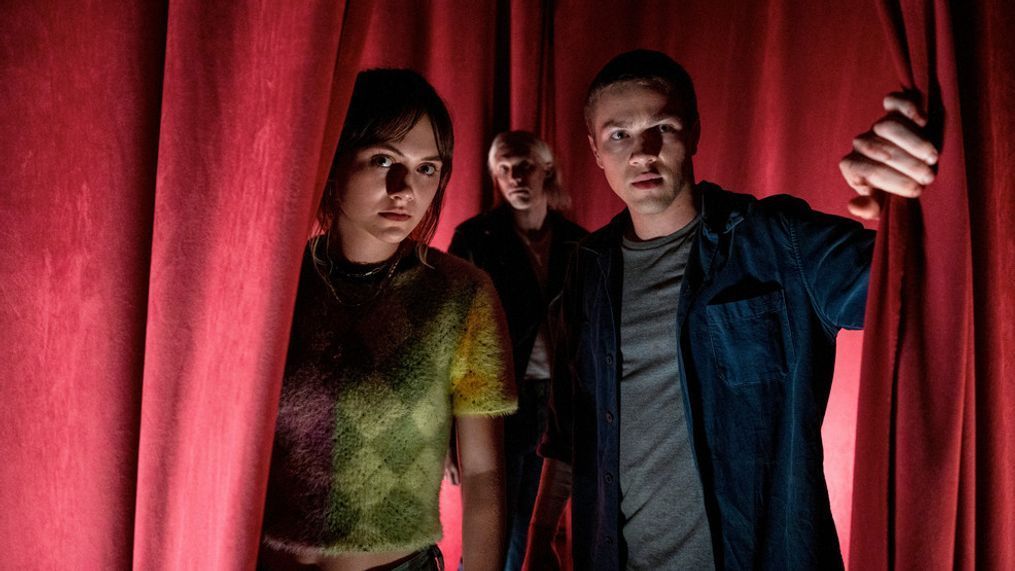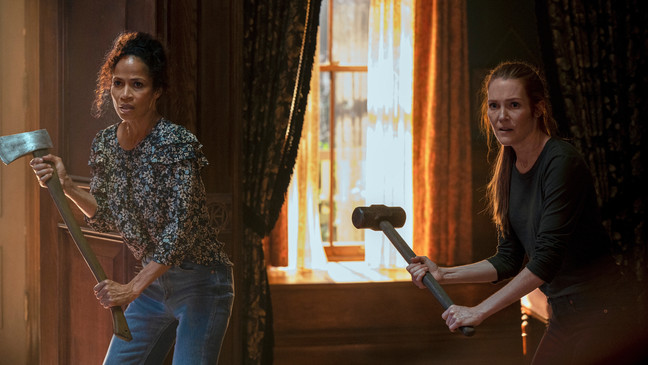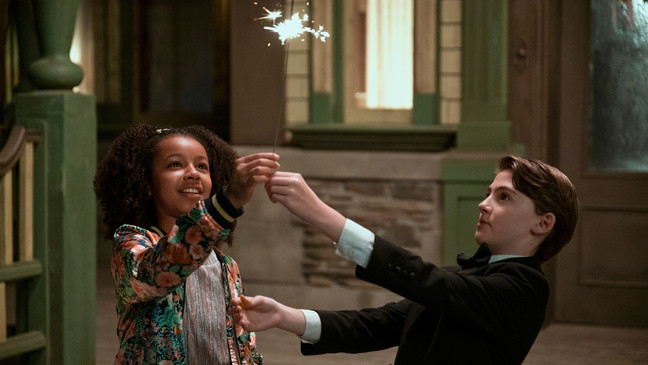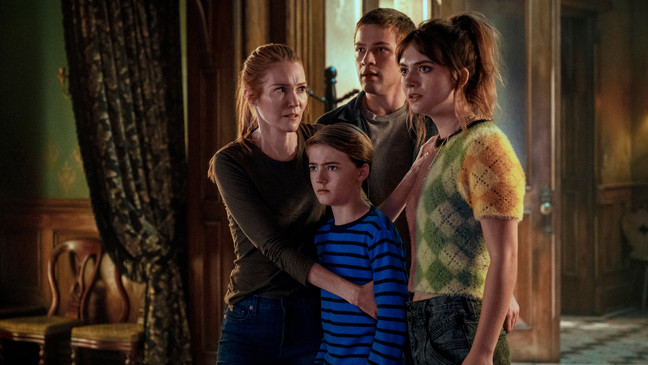Review: Netflix's 'Locke & Key' rarely lives up to its potential
SALT LAKE CITY (KUTV) — Locke & Key
3 out of 5 Stars
Creators: Meredith Averill, Aron Eli Coleite, Carlton Cuse
Based on: Comic-book series by Joe Hill and Gabriel Rodríguez
Starring: Darby Stanchfield, Connor Jessup, Emilia Jones, Jackson Robert Scott
Genre: Horror, Drama, Fantasy
Rated: TV-14
Studio Synopsis: After their dad's murder, three siblings move with their mom to his ancestral estate, where they discover magical keys that unlock powers — and secrets.
Review: After interviewing Emilia Jones for “CODA” last year, I earmarked Netflix's “Locke & Key” as something I wanted to watch. Still, I was hesitant to dive in. The premise, a mix of fantasy and horror that follows three siblings as they explore their murdered father’s ancestral home, intrigued me. But I’m resistant to things I might like. When I feel like a target audience, I start to overthink and become incredibly nervous. What if I hated it? Would I have to change my opinion of Jones? I didn’t want to change my opinion of Jones.
In late July I put together my monthly coming and going Netflix articles. Seeing that the third and final season of “Locke & Key” was included, I decided to scratch out the time to watch the series in its entirety. 28 episodes in 14 or so days. How hard would it be to find 20 or so hours?
Last night I finished the final two episodes. There’s a lot to unpack; I’ll do my best to be concise.
I liked “Locke & Key,” but I didn’t love it.
It’s hard to not make comparisons to “Stranger Things.” Even if their only shared similarities are the horror and fantasy genres and main characters who are in their teens, the intended audience is similar if not the same.
“Stranger Things” has an advantage when it comes to atmosphere. It is far easier to capture a sense of the 1980s than it is to figure out what is unique about the present. “Strangers Things” has the Cold War and satanic panic to build off. “Locke & Key” feels ambiguous and detached from a specific place and time. This is also reflected in the soundtrack. “Locke & Key” features its share of needle drops, but none of them have the same effect as “Running Up That Hill” or “Master of Puppets.” The clothing the characters wear is generic. Eden (Hallea Jones) and Dodge (Laysla De Oliveira) dress “sexy,” Kinsey (Jones) is seemingly always in a shirt or sweater that shows off her midriff, and Scot (Petrice Jones) occasionally wears distinctive combinations (he’s British and a filmmaker); everyone else is blasé. Maybe we're just living in an incredibly bland time period.
Both series are a bit uneven when it comes to tone. “Stranger Things” has more of a sense of humor. “Locke & Key” feels more melodramatic with less distinct characters who chew the scenery in a less entertaining way. The whole doppelganger aspects of the story feel a bit hokey. Its villains are too defined and neither Dodge nor season three’s Frederick Gideon (Kevin Durand) are nearly as menacing as they need to be. It’s all a bit cartoonish.
“Locke & Key” feels like it was made up as it went along. This is partially because there is a seemingly endless number of keys for the characters to discover. Yes, we’re told early on that the keys present themselves when they are needed, but there’s always another key to offer a remedy to whatever challenge the Locke family is asked to face.
There are some great ideas in “Locke & Key,” particularly when it comes to the Head Key and the way it is used to explore the mindset of the individual characters. I’m less interested in mind-control ballerinas, strongman belts, and pyromaniac toys.
The best storyline in the series deals with Tyler Locke (Connor Jessup) and his girlfriend Jackie (Genevieve Kang). Their struggles feel more real and less juvenile. Kinsey’s relationship with Scot is occasionally believable. Kinsey’s time with Gabe (Griffin Gluck) is more insufferable than was intended (and it certainly is intended).
I don’t feel like I wasted my time, but I also don’t feel like “Locke & Key” lived up to its potential. The acting is fine, but the characters aren’t particularly likable. They all tend to make the most idiotic of mistakes when it matters the most. They say just enough to not say anything. Being vague isn’t the same as being clever. I'm not sure I'd want to hang out with any of them, which is strange because they're supposed to be exactly the sort of people I would want to hang out with.




